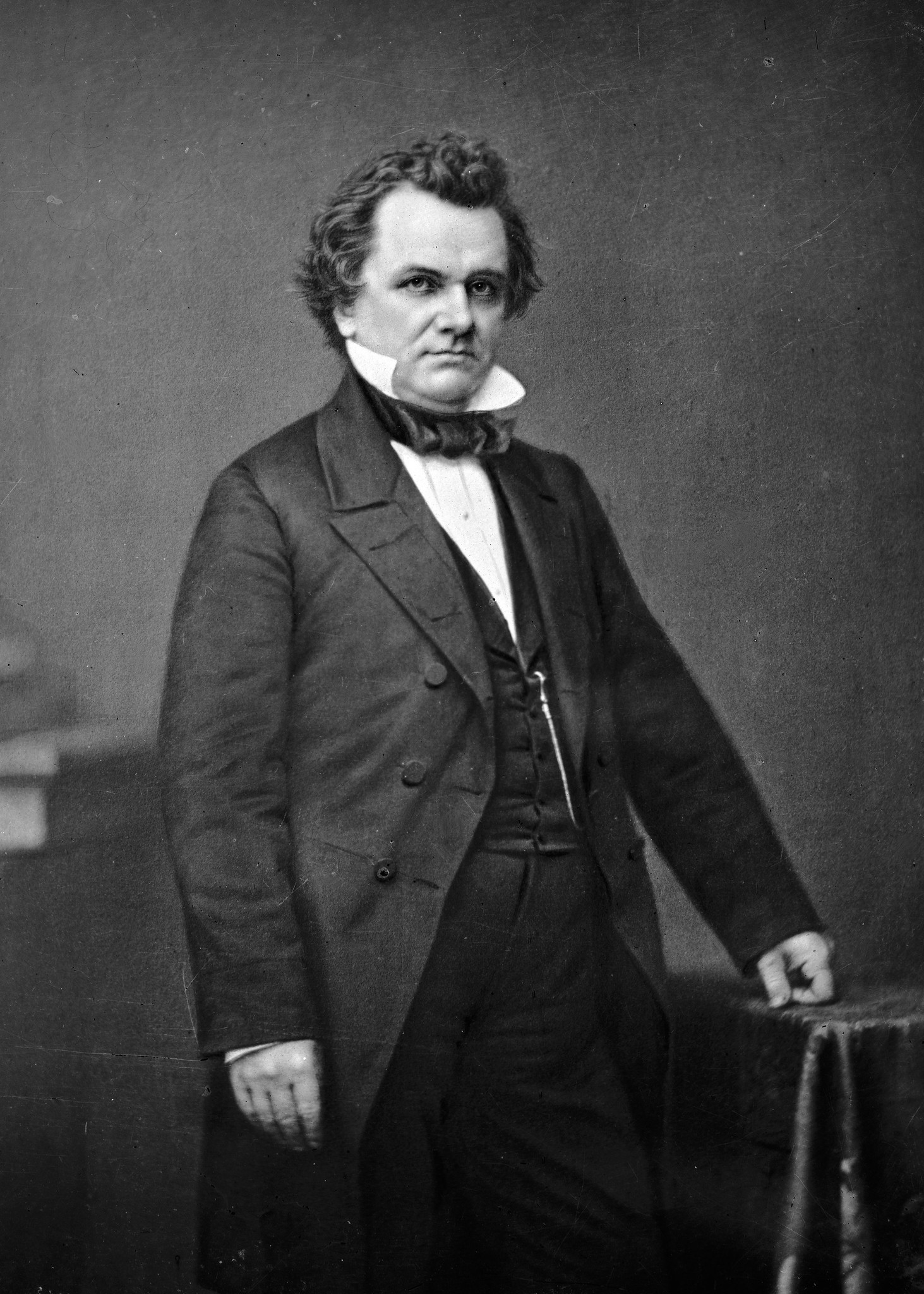Civil War Portraits—Leaders, Influencers, and the Incidentally Important #008
“When all propositions of peace fail, and a war of aggression is proclaimed, there is but one course left for the patriot, and that is to rally under that flag which has waved over the Capitol from the days of Washington, and around the government established by Washington, Hamilton, and their compeers.” (April 25, 1861)

Stephen Arnold Douglas (April 23, 1813 – June 3, 1861) was an American politician and lawyer from Illinois. He was one of two Democratic Party nominees for president in the 1860 presidential election, which was won by Republican Abraham Lincoln. Douglas had previously defeated Lincoln in the 1858 United States Senate election in Illinois, known for the Lincoln–Douglas debates. During the 1850s, Douglas was one of the foremost advocates of popular sovereignty, which held that each territory should be allowed to determine whether to permit slavery within its borders. Douglas was nicknamed the “Little Giant” because he was short in physical stature but a forceful and dominant figure in politics.
After the 1860 presidential election, Douglas returned to the Senate, where he sought to prevent a break-up of the United States. He joined a special committee of thirteen senators, led by John J. Crittenden, which sought a legislative solution to the growing sectional tensions between the North and South. He supported the Crittenden Compromise, which called for a series of constitutional amendments that would enshrine the Missouri Compromise line in the constitution, but the Crittenden Compromise was defeated in committee by a combination of Republicans and Southern extremists. As late as Christmas 1860, Douglas wrote to Alexander H. Stephens and offered to support the annexation of Mexico as slave territory to avert secession.
Douglas unsuccessfully sought President-elect Lincoln’s support for the Peace Conference of 1861, another attempt to head off secession. Lincoln was unwilling to support the conference, but Douglas described his meeting with Lincoln as “peculiarly pleasant.” Douglas praised Lincoln’s first inaugural address, describing it as “a peace offering rather than a war message” to the South.
After the Confederate attack on Fort Sumter in April 1861, Lincoln decided to proclaim a state of rebellion and call for 75,000 troops to suppress it. Douglas met privately with Lincoln, looked over the proclamation before it was issued and endorsed it. He suggested only one change: Lincoln should call for 200,000 troops, not just 75,000. “You do not know the dishonest purposes of those men as well as I do,” he said. To a friend, he stated, “I’ve known Mr. Lincoln a longer time than you have, or than the country has. He’ll come out all right, and we will all stand by him.” In late April, Douglas departed Washington for the Midwest, where he rallied support for the Union cause.
Douglas was struck by illness in May 1861 and was confined to his bed. Though his supporters initially expected a quick recovery, Douglas contracted typhoid fever and suffered from several other afflictions. He died on June 3, coincidentally on the same day as the Battle of Philippi, the first skirmish of the American Civil War. On June 4, Secretary of War Simon Cameron issued a circular to Union armies, announcing “the death of a great statesman … a man who nobly discarded party for his country”. (Read more at Wikipedia)
Library of Congress Prints & Photographs
Title: Stephen A. Douglas
Date Created/Published: [between 1855 and 1865]
Medium: 1 negative : glass, wet collodion.
Reproduction Number: LC-DIG-cwpbh-00880 (digital file from original neg.)
Rights Advisory: No known restrictions on publication.
Call Number: LC-BH82- 2460 A [P&P]
Repository: Library of Congress Prints and Photographs Division Washington, D.C. 20540 USA
Notes:
…..Title from unverified information on negative sleeve.
…..Credit line: Brady-Handy photograph collection, Library of Congress, Prints and Photographs Division.
…..Purchase; Alice H. Cox and Mary H. Evans; 1954.
…..General information about the Brady-Handy photograph collection is available at https://hdl.loc.gov/loc.pnp/pp.brhc
…..Forms part of: Brady-Handy photograph collection (Library of Congress).
https://www.loc.gov/pictures/item/2017895894/
___________
Mike’s notes:
Note – This image has been digitally adjusted for one or more of the following:
– fade correction,
– color, contrast, and/or saturation enhancement
– selected spot and/or scratch removal
– cropped for composition and/or to accentuate subject